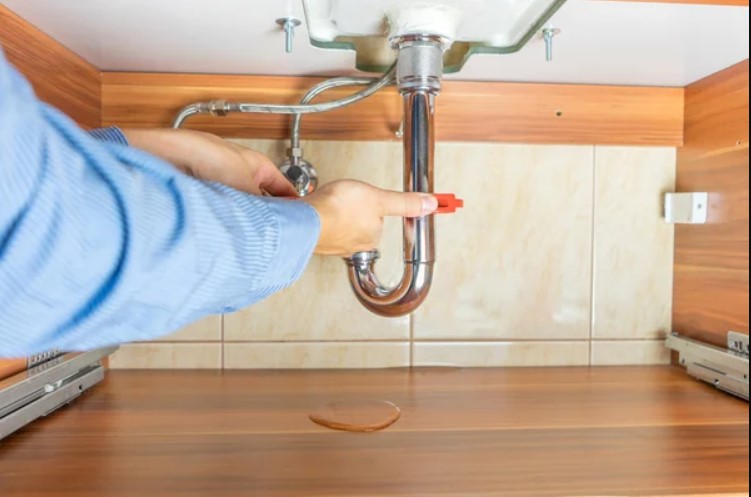Common Issues with Your Pipes

If you have issues with your pipes, you’re not alone. Many homeowners have to deal with plumbing problems at some point. Here are some of the most common issues: Clogged Pipes: One of the most common issues is clogged pipes. This can be caused by anything from hair to food particles. If you have a clog, you’ll need to use a plunger or a snake to clear it. Leaky Pipes: Another common problem is leaking pipes. This can be caused by corrosion, damage, or even loose connections. If you have a leak, you’ll need to find the source and repair it. frozen Pipes: In cold weather, water in your pipes can freeze, causing them to burst. To prevent this, make sure your pipes are well-insulated. These are just a few of the most common issues with pipes. If you’re having trouble with your plumbing, it’s best to call a professional.
Slow drains
are a pain. If you have a slow drain, there are a few things you can do to try to fix it yourself. First, try running hot water down the drain to see if that helps. If that doesn’t work, you can try using a plunger or a snake. If those don’t work, you may need to call a plumber.
Clogged drains
Your drains are one of the most important parts of your home – they carry away all of the dirty water and waste so that your home stays clean and healthy. But when they become clogged, they can cause all sorts of problems. Clogged drains are a pain, but there are some simple things you can do to prevent them. First, be careful what you put down your drains. Avoid pouring grease, fat, or oil down the drain, as these can all solidify and cause a blockage. Instead, pour them into a container and dispose of them in the trash. Second, don’t put any coffee grounds, egg shells, or other food waste down the drain. These can also cause clogs. Finally, if you have a lot of hair in your drains, use a drain catch to keep it from going down the drain in the first place. If you do end up with a clogged drain, there are a few things you can do to try to fix it. First, try using a plunger. If that doesn’t work, you can try using a plumber’s snake, which is a long, flexible tool that can reach deep into the drain and clear out the clog. If neither of these methods works, you may need to call a plumber to come and take care of the problem. Clogged drains are never fun, but by taking some preventive measures and being prepared to deal with them if they happen, you can minimize the hassle and get your drains flowing freely again in no time.
Water leaks
can be a serious issue for any homeowner. Water leaks can be a serious issue for any homeowner. They can cause extensive damage to your home, and can even lead to health problems. There are a few things you can do to help prevent water leaks, and to fix them if they do occur. One of the best ways to prevent water leaks is to have your plumbing checked regularly. A professional plumber can check for any potential problems, and can fix them before they become serious. You should also check your pipes regularly for any signs of wear or damage. If you notice any leaks, you should call a plumber as soon as possible to have them fixed. If you do have a water leak, it is important to act quickly. Turn off the water to your home, and then call a plumber. The longer you wait, the more damage the leak will cause. Once the plumber arrives, they will be able to determine the cause of the leak, and will be able to fix it. If you think you may have a water leak, don’t hesitate to call a plumber. The sooner you get it fixed, the less damage it will cause.
Burst pipes
If a pipe bursts in your home, you will need to take immediate action to minimize the damage. Depending on the severity of the leak, you may be able to repair the pipe yourself or you may need to call a professional. If the leak is small, you can turn off the water at the valve closest to the leak. This will stop the flow of water and give you time to make a repair. If the leak is large, you will need to turn off the main water valve to your home. Once the water is turned off, you can assess the damage and make the necessary repairs. If you have a burst pipe, it is important to act quickly to minimize the damage. Depending on the severity of the leak, you may be able to repair the pipe yourself or you may need to call a professional.
Frozen pipes
are often a problem when the weather gets colder. When the weather gets colder, frozen pipes are often a problem. Pipes can freeze when the temperature outside drops below freezing, and if they are not properly insulated, they can burst. This can cause significant damage to your home, and it can be expensive to repair. There are a few things you can do to prevent your pipes from freezing, and if they do freeze, there are some steps you can take to thaw them out safely. First, you can insulate your pipes to help prevent them from freezing. You can use pipe insulation, which is available at most hardware stores, or you can wrap them with electric heating tape. If your pipes are exposed to the cold, such as in an unheated basement or crawl space, keep the doors and windows closed to help keep the area warm. If your pipes do freeze, turn off the water to the affected area of your home. Then, thaw the pipes out gradually by applying heat to them. You can use a hair dryer, a space heater, or even towels soaked in hot water. Apply the heat to the pipes for a few minutes at a time, and then turn on the water to see if it is flowing again. If the water is still not flowing, you may need to call a plumber to come and take a look. Taking some simple precautions can help you avoid frozen pipes this winter. Be sure to insulate your pipes and keep exposed areas of your home warm to help prevent them from freezing. And if your pipes do freeze, turn off the water and thaw them out slowly and carefully to avoid damaging them.
Noise coming from pipes
If your pipes are making noise, it could be caused by a number of factors. The most common reason is that the pipes are not properly insulated. This can cause the water in the pipes to freeze, expand, and then contract again as it thaws, which can create a knocking sound. Another possibility is that your pipes are damaged and need to be repaired or replaced. In either case, you’ll need to call a plumber to take a look at your pipes and make the necessary repairs.



